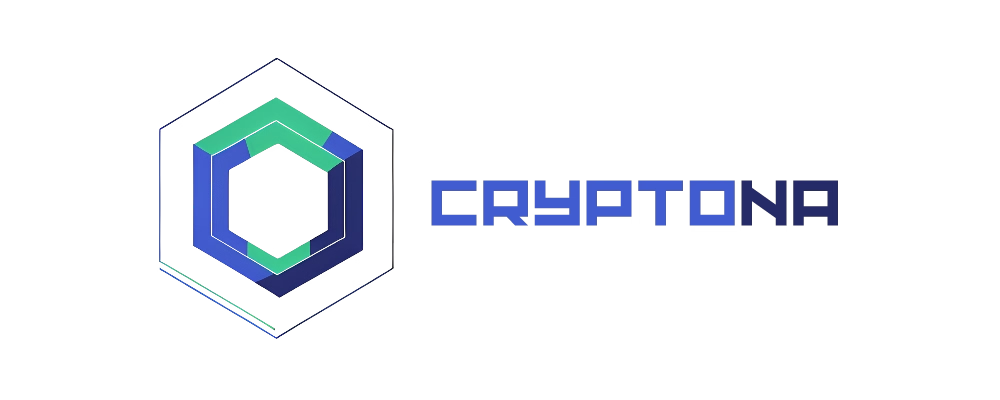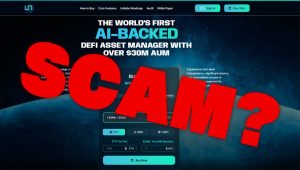Unilabs Finance presents itself as a next-generation decentralized finance (DeFi) platform, claiming to blend artificial intelligence with smart trading algorithms to deliver high-yield asset management and predictive analytics. According to its promotional materials, the project is designed to optimize user returns through automated strategies while offering early adopters access to its native token via a public ICO.
The platform is marketed as a full-service DeFi ecosystem, complete with staking pools, liquidity management, and AI-generated investment models. It also mentions plans for cross-chain compatibility and future NFT integration. On the surface, Unilabs appears to check many boxes for an ambitious Web3 startup—but closer inspection reveals several major issues that analysts and retail investors alike are now questioning.
Red Flags in the Hype
1. Minimal Real Coverage
While the project claims traction, there is a notable absence of organic media attention. Most articles about Unilabs Finance are either hosted on low-authority websites or appear to be paid press releases. A Reddit thread on r/CryptoHelp reflects this skepticism:
“Claims to have $30m in assets and no social media presence. News articles surrounding it are just paid press releases… it is 100% a scam.”
— Reddit user
This lack of independent journalism raises concerns about the project’s actual exposure and community adoption.
2. Unverified Claims of Assets Under Management
Unilabs says its platform already manages over $30 million in DeFi assets, but there is no on-chain data, verifiable contract address, or audit trail to support this. Without a single linked wallet, explorer address, or third-party audit, such bold claims feel more like marketing than measurable performance.
3. Heavy Presale Focus
The Unilabs ICO has allocated 136 million tokens at a price of $0.0051, allegedly raising over $600,000 within the first three days. While rapid funding might signal interest, it’s also a known tactic in scams—generate urgency, raise funds quickly, and disappear before the token is tradable.
4. Anonymous or Obscured Team
The website features no verifiable team members, no GitHub activity, and no social media footprint. Scam-checking tools show the domain has a low trust rating and WHOIS privacy protection. In the crypto space, legitimate teams make themselves known; hiding behind anonymity often suggests a lack of accountability.
Unilabs Finance Tokenomics: Promising Model or Just Smoke and Mirrors?
Unilabs Finance outlines a sleek tokenomics model—but upon closer inspection, several inconsistencies and concerns arise.
Token Supply & Distribution
The project claims a total supply of 1 billion UNIL tokens, with distribution roughly segmented as follows (based on available presale documentation and unofficial sources):
- 13.6% (136 million tokens) allocated to the public presale
- 20% reserved for the development team
- 25% dedicated to the ecosystem fund
- 10% for marketing and partnerships
- 5% for liquidity provisioning
- 26.4% unspecified or “future use”
While these allocations aren’t inherently suspicious, the absence of a transparent vesting schedule or locked liquidity contract raises serious doubts. Particularly concerning is the 20% team allocation—a significant portion that, if unlocked immediately, would give the anonymous devs enormous sell pressure leverage post-listing.
Presale Economics
According to promotional claims, the presale is priced at $0.0051 per token, and over $600,000 was allegedly raised in just 72 hours. That would imply over 117 million tokens sold already—yet:
- There is no verifiable smart contract address for the presale
- No KYC procedures or participant limits
- No vesting or lockups for presale investors
These factors suggest the team could potentially dump tokens on the market post-listing with no restrictions—a hallmark of pump-and-dump exit scams.
Liquidity Strategy: Nonexistent?
A legitimate project typically outlines how it will use raised funds: liquidity pools, centralized exchange (CEX) listings, protocol development, etc. Unilabs does none of this clearly. There is no stated plan for token listing, no liquidity lock contract, and no audit of fund flow from the presale wallet. If liquidity isn’t locked, even a minor listing could trigger a liquidity rug, leaving early buyers with worthless tokens.
Inflationary Pressure and Utility Concerns
Unilabs claims to offer yield from AI-powered strategies, but it appears rewards will be distributed in UNIL tokens—raising questions:
- Where does yield come from? If it’s just more tokens, that’s dilution, not real value.
- How is demand created? There’s no roadmap for partnerships, integrations, or staking mechanics that would generate token utility.
Without external revenue or protocol fees, the model is inherently inflationary, relying on new investors to sustain payouts—dangerously close to a Ponzi structure.
Audit and Transparency Score: 0/10
There is no published audit, no on-chain analytics dashboard, and no token tracker listing UNIL on tools like Etherscan, BscScan, or DEXTools. Until the team reveals a verifiable token contract and proper tokenomics breakdown—including lockups and emissions—it’s impossible to trust the numbers they present.
Analyst Insight: Why It Doesn’t Add Up
Taking a step back, analysts reviewing Unilabs Finance note that the project’s overall structure reinforces the concerns raised earlier. While the surface-level presentation may appear polished, the lack of transparency and independent verification undermines its legitimacy at every level.
1. No Verifiable Smart Contract
Despite launching an ICO and claiming to have raised over $600,000, Unilabs has not published a smart contract address for its token. This omission makes it impossible to verify token creation, supply limits, or distribution patterns. In a space where on-chain data is the ultimate source of truth, this alone is a major red flag.
2. No Audit or Third-Party Due Diligence
A basic expectation for any project raising substantial funds—especially one claiming to use complex AI trading algorithms—is a third-party audit. Yet, there is no audit of Unilabs’ smart contracts, token mechanics, or presale logic. The lack of independent verification mirrors earlier concerns about unverifiable claims of assets under management.
3. No Community, No Engagement
Crypto projects thrive on transparency and interaction. From GitHub commits and AMAs to active Discords and roadmaps, successful ventures build public trust through consistent communication. Unilabs, however, has no GitHub presence, no meaningful social media footprint, and no community updates. This aligns directly with the earlier issue of minimal real media coverage—suggesting the entire effort is driven by marketing, not community-building.
Verdict: Is Unilabs Finance a Scam?
There’s no single silver bullet proving Unilabs is a scam—but the pattern of behavior, combined with the lack of transparency and community activity, fits a familiar profile:
- Unrealistic claims of assets under management
- Paid media instead of earned reputation
- No verifiable code or audits
- Anonymous team and domain privacy
- A fast-moving presale with no liquidity proof
These factors collectively suggest the project is not trustworthy. While it may not be confirmed as a scam yet, it certainly lacks the credibility expected in a legitimate ICO.
What Investors Should Do
- Avoid until proof surfaces: Wait for token contract links, GitHub repos, and team doxxing.
- Don’t rely on presale hype: Many scam projects stage presales, pump hype, and exit.
- Cross-check Reddit and forums: Community consensus often surfaces real investor experiences.
Bottom Line
Unilabs Finance positions itself as an ambitious DeFi platform powered by AI, but beneath the surface, the fundamentals simply don’t hold up. Despite bold claims of managing $30 million in assets and raising hundreds of thousands through its presale, the project offers no verifiable smart contract, no audit, no token listing, and no visible development team.
Everything about Unilabs feels curated for marketing: vague promises, paid articles, and flashy buzzwords with no supporting data. Its tokenomics lack transparency, its liquidity strategy is unclear, and its community presence is practically nonexistent. These are not minor oversights—they’re consistent red flags.
In a crypto market where due diligence is non-negotiable, Unilabs has provided none of the evidence needed to earn investor trust. Until the team delivers real, on-chain proof and opens up about who they are and how funds are used, Unilabs Finance should be treated with extreme skepticism.






















Leave a Reply